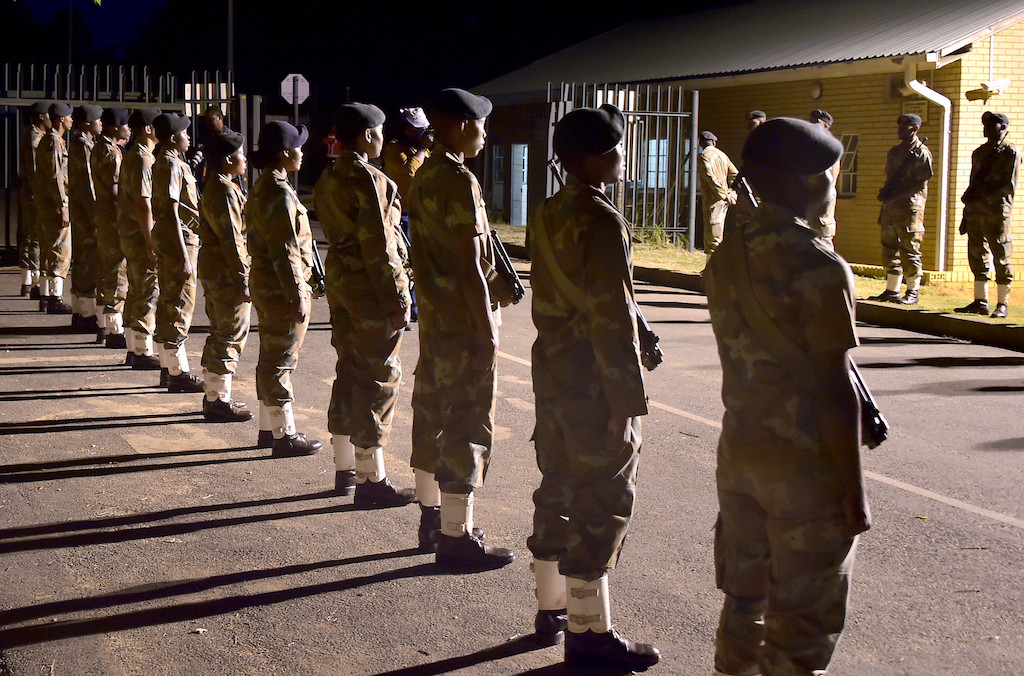News
Don't scrap the army - fix it
A defence force is the ultimate insurance policy against external aggression, whether this today is cyber or physical. If nothing else, COVID has reminded of the importance of national resilience and the protection of critical national infrastructure

'Abolish the Army' wrote Tristen Taylor, citing my study on the poor performance and lack of reform of SA's defence force as a reason to do so.
That's a lazy argument however, more philosophical than practical, and not especially useful. One might similarly argue, after all, that any institution needing reform should be abolished.
The SA National Defence Force is a reasonable reform target. It has, as my own research shows, became fat, old and too inefficient to do its job properly and spend taxpayers' money wisely.
Of the regular force of 76,000 men and women, some 10% are medically fit enough to be deployable. Given the need for rotation and training, this means around 2,000 are effectively available. With critical shortages in doctors, naval engineers, pilots, and aircraft technicians, just one of the now 11 C-130 transport aircraft is flying, as are five each of the Gripen fighter-jets (of 26 supplied in the infamous arms deal) and Hawk trainers (of 24), and less than one-third of the 35 Oryx helicopters. The Navy is hardly better off. Just one (of three) German Type 209 submarines is fully operational, and one of the four Meko-class corvettes.
The shortage of skills aside, this situation is partly due to a shortage of money. An underfunded defence force is a huge liability. And in part it's down to politics.
As one consequence, the SANDF has been forced to import (expensive) personnel. There are now hundreds (perhaps thousands) of Cubans mainly in technical roles, including the management and maintenance of the ground transport fleet. 'Pass the spanner, Comrade …. Show us your dolares amigo.'
These failings have also meant the need for reservists to bolster the full-time force. Currently 13,000 are supporting SANDF regulars on COVID-19 operations, the likes of which include emergency engineering services and army hospitals. Some 160 additional civilian doctors were recently signed up for this purpose. While much attention has been focused on the tragic death of Collins Khoza amidst allegations of military heavy-handedness elsewhere, these incidents obscure the thousands of other patrols, roadblocks and support functions carried out without incident.
Still, the list of necessary reforms is long, as is expected of this government. There is a need for strengthened parliamentary and civilian oversight through the Defence Secretariat, not the rubber-stamp it has become. The SANDF's burgeoning numbers of generals and admirals need to be trimmed and their BMWs and Mercedes exchanged for Hyundai's and KIAs.
The logic for the SANDF's existence remains sound however, whatever the failings and excesses, and poor political direction. A defence force is the ultimate insurance policy against external aggression, whether this today is cyber or physical. If nothing else, COVID has reminded of the importance of national resilience and the protection of critical national infrastructure.
And there are other, supplementary roles from disaster relief to peacekeeping operations and the guarding of economic resources. The SANDF does not do any of these as well as they might, for the reasons identified above. Yet this does not mean that these roles are not required. And then there is a question of what sort of country we want to be — while it is only one element of national power, military strength is there to provide a means of diplomatic leverage. As former US Secretary of State George Shultz noted, 'The hard reality is that diplomacy not backed by strength is ineffectual … Leverage, as well as goodwill, is required.'
How to fix the SANDF is a tough issue, since it involves contentious politics, complex restructuring and grubby horsetrading.
There is a budget issue. The defence spending breakdown should, in an ideal world, be 40% (salaries): 30% (capital): 30% (operational). Now it is more like 80:5:15. One reason why there is no money for operations is that the budget has continuously been cut. Another is force posture and the (wrong) choice of equipment: SA has, for example, supersonic jets when it needs transports, and submarines when it needs to stop perlemoen poachers. And there are too many of the wrong sort of people. The average age of personnel is over 40 when it should be around 25.
Leopards don't crawl on large tummies.
The SANDF's key problem is not its existence per se. It's that the SANDF has become a welfare not a warfare agency. This government is apparently fearful of putting 50,000 old soldiers out on the street, especially given their limited skill sets and high levels of politicization.
Politicians hate hard choices.
Yet if it fails to reform and right-size, the SANDF should expect more frequent calls for its disbandment as resources inevitably become scarcer in a post-COVID world. During the 1990s, the defence force mounted a public charm offensive in its emergence from apartheid. Today it has become an introverted, secretive organization, its PR clumsy and occasionally cringeworthy.
The SANDF needs to understand what it means to operate in a democracy. Criticism should not present an existential challenge but an opportunity to engage. Its refreshed social media engagement is a start.
To win public hearts and minds, however, the SANDF will have to discard its own prejudices and pigeon-holes. It will need to appreciate that it should be possible in today's world to be socially liberal and fiscally conservative, simultaneously in favour of free-trade and pro-environment, and strong on human rights and defence. South Africa needs to maintain a worthy and cost-effective military to cope with multiple challenges, and to promote its constitutional values and protect freedoms.
But don't throw the baby out with the bathwater in confusing the imperative of reform with an argument for disbandment.
Dr Mills heads the Brenthurst Foundation, and is the co-author most recently of 'The Asian Aspiration: Why and How Africa Should Emulate Asia' (Picador).
An edited version of this article was published by the Financial Mail
Image: GCIS



